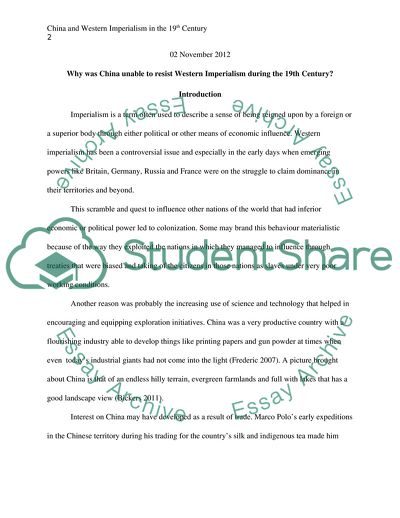Cite this document
(Why was China Unable to Resist Western Imperialism during the 19th Coursework, n.d.)
Why was China Unable to Resist Western Imperialism during the 19th Coursework. https://studentshare.org/history/1785769-why-was-china-unable-to-resist-western-imperialism-during-the-19th-century
Why was China Unable to Resist Western Imperialism during the 19th Coursework. https://studentshare.org/history/1785769-why-was-china-unable-to-resist-western-imperialism-during-the-19th-century
(Why Was China Unable to Resist Western Imperialism During the 19th Coursework)
Why Was China Unable to Resist Western Imperialism During the 19th Coursework. https://studentshare.org/history/1785769-why-was-china-unable-to-resist-western-imperialism-during-the-19th-century.
Why Was China Unable to Resist Western Imperialism During the 19th Coursework. https://studentshare.org/history/1785769-why-was-china-unable-to-resist-western-imperialism-during-the-19th-century.
“Why Was China Unable to Resist Western Imperialism During the 19th Coursework”. https://studentshare.org/history/1785769-why-was-china-unable-to-resist-western-imperialism-during-the-19th-century.


